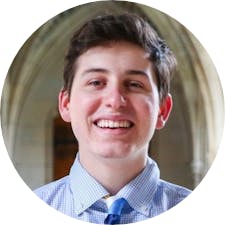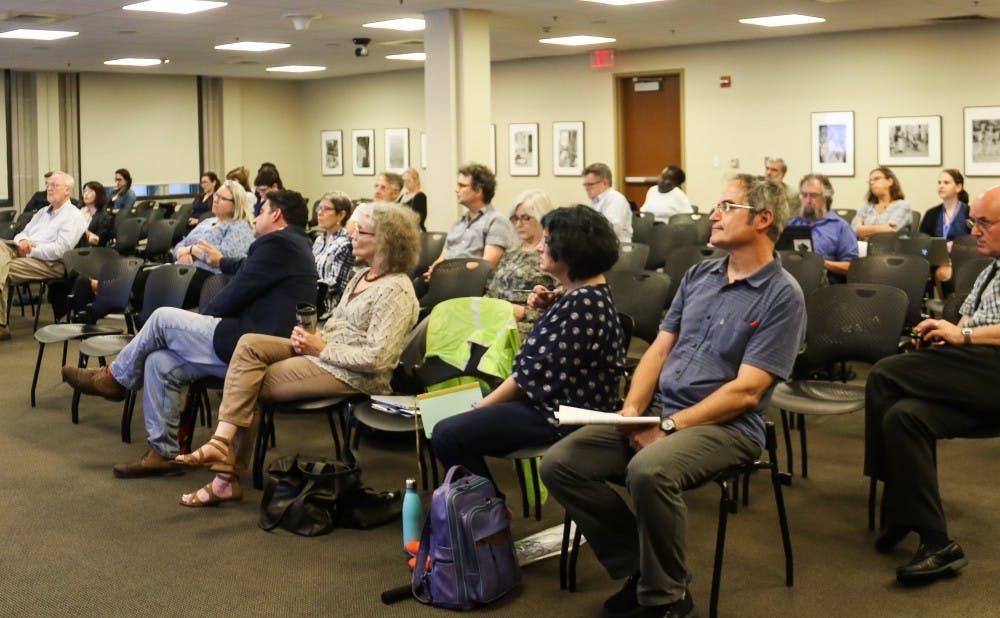The Arts and Sciences Council wants some advice on advising.
Undergraduate advising was the main topic of discussion at the second Arts and Sciences Council meeting of this semester. Faculty representatives brainstormed on how advisors can best serve students' needs.
José María Rodríguez García, chair of the council, reintroduced to the council a committee that was once active more than a decade ago: the Committee on Faculty and Student Interaction.
He explained that the committee was originally formed in 2004, but it did not last very long. Since advising was such a hot-button issue for council members at the end of last year, he figured it was a “good time to have this conversation on advising.”
Members on the committee will meet and interview the vice provost for undergraduate education, the vice president of student affairs, deans and department chairs to draft a better plan for faculty advising, García said.
The committee will lead a second discussion on advising in a spring Arts and Sciences Council meeting.
The Academic Advising Center is one of the primary channels where students receive advising, said David Rabiner, director of the center. The center's current advising network includes 280 college advisors, Directors of Academic Engagement and faculty advisors.
College advisors, who provide curriculum and academic advice, could become a better source for students, he added.
“We're encouraging college advisors to move beyond transactional advising,” Rabiner said.
The economics department offers different advising tools such as EcoTeach, access to directors of undergraduate studies and research mentors, said Grace Kim, associate director of undergraduate studies and associate professor of the practice of economics.
Students should learn about all the opportunities and advisors available but not feel pressured to do everything, said Chris Roy, associate director of undergraduate studies and associate professor of the practice of chemistry. Roy also serves as a pre-health advisor.
Faculty members continued to discuss how to make students more aware of advising resources and how to strengthen the bonds between advisor and student.
The faculty discussed whether students were overwhelmed by all the advisors available to them and whether they trusted faculty to give proper advice. Kim said students were hit with a “fire hydrant of information.”
Students get most of their advice from their “peer network,” which are stronger in social organizations, said Catherine Admay, lecturer at the Sanford School of Public Policy.
Nayoung Aimee Kwon, associate professor of Asian and Middle Eastern studies, also pointed out that identity affiliate groups are offering advice without faculty involved, so faculty should reach out to those groups.
In other business:
Carol Apollonio, chair of the new Classroom Space and Infrastructure Committee and professor of the practice of Slavic and Eurasian studies, briefly went over the goals of the committee, including having a streamlined process for professor complaints.
"We can solve little problems that cause annoyance to a lot of people," she said, regarding nuisances in classrooms.
After the September meeting was delayed due to Hurricane Florence, Valerie Ashby—dean of Trinity College of Arts and Sciences—was scheduled to speak about the first- and second-year experience initiative. However, García said after the meeting that she had to go to a different “urgent” meeting and could not speak today. He added that Ashby is tentatively scheduled for the December council meeting.
Get The Chronicle straight to your inbox
Signup for our weekly newsletter. Cancel at any time.

Jake Satisky was the Editor-in-Chief for Volume 115 of The Chronicle.

